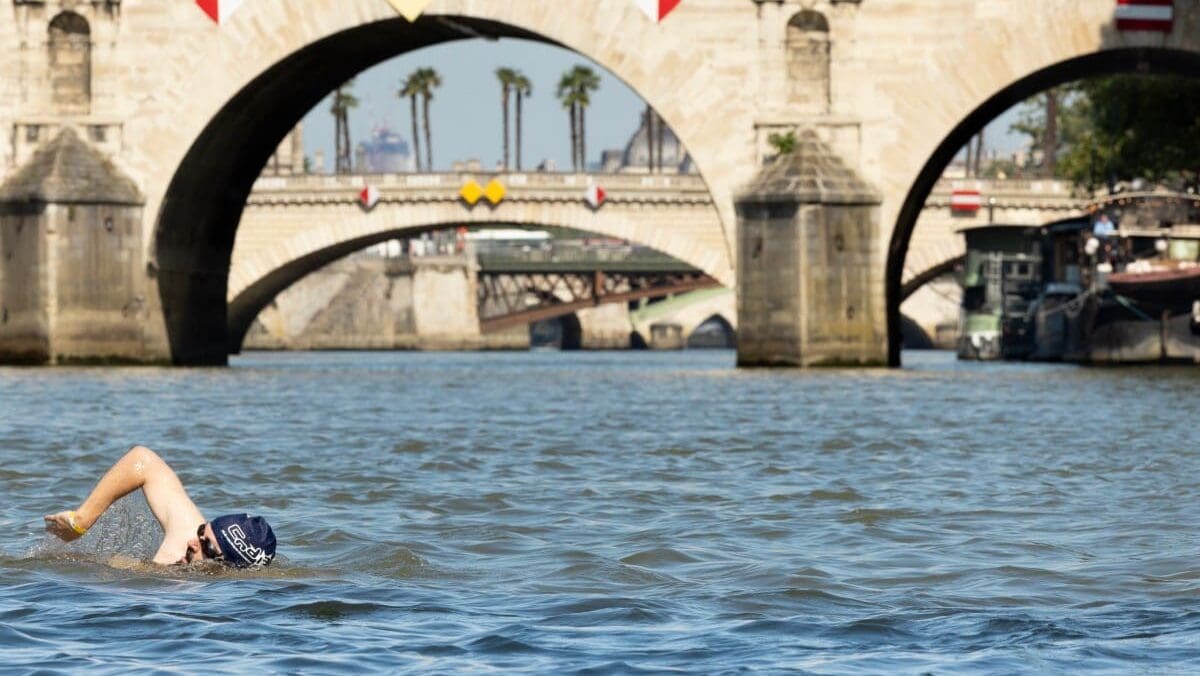
Photo: JOEL SAGET / AFP
The large-scale operation to clean up the Seine launched by Paris mayor Anne Hidalgo has not taken the river to the level of cleanliness required to support Olympic swimming events. This latest difficulty has hit competitive triathlon swimming originally scheduled for Tuesday, July 30th: these have had to be postponed.
The expert verdict arrived just three hours before the start of the event: pollution levels in the Seine were too high on the morning of Tuesday, July 30th, making it impossible to hold the men’s triathlon events—which was to include competitive swimming in the river.
The decision comes as no surprise. In recent months, test events have had to be cancelled and postponed on several occasions due to the poor water analysis results taken from the Seine. Two training sessions scheduled for Saturday and Sunday were also cancelled. The cause was the heavy rain that fell on the capital on Friday and Saturday, particularly during the opening ceremony on July 26th—the equivalent of 15 days’ rainfall.
The event is due to be postponed until Wednesday, July 31st and then, if bacteriological contamination levels are still too high, until Friday, August 2nd. There is a high risk that the event will be postponed twice, as severe thunderstorms are forecast for Tuesday evening following a heatwave in France’s capital. In the event of heavy rain, untreated water could be discharged into the river, degrading its condition. Retention basins, inaugurated just before the Games, were intended to prevent this from happening, but are clearly insufficient.
Paris mayor Hidalgo says she is confident. On Monday, she stressed that the new retention basins would enable the situation to be restored quickly—but despite these declarations, the Seine is still not swimmable. Parisians are critical of the colossal investment of €1.4 billion that has been made to clean up the river, which has to date been completely wasted.
A few days ago, Anne Hidalgo herself tried her hand at swimming in the Seine, despite the fact that the water was polluted beyond regulatory thresholds, according to Le Parisien. On the day in question, the concentration of reference bacterium Escherichia coli (from the species E. coli) was close to 1,000 CFU/100ml. Normally, the threshold for public safety is 900 CFU/100ml. When water exceeds the standards in force, the main risks include contracting gastro-enteritis, conjunctivitis and dermatological problems. For athletes, the threshold has been set at 1,000 CFU/100ml, which is slightly higher than that set for the public.
After the triathlon, other events are also due to take place in the Seine: the mixed triathlon relay on August 5th, followed by marathon swimming (August 8th and 9th) and the paratriathlon (September 1st and 2nd). The risk of a general postponement of the events cannot be ruled out, which would test the nerves of the competing athletes.
The organisers of the Paris Olympics have put their faith in the expensive cleanup of the river and do not have an alternate location for the swim if the Seine’s bacteria levels continue testing above acceptable limits.
